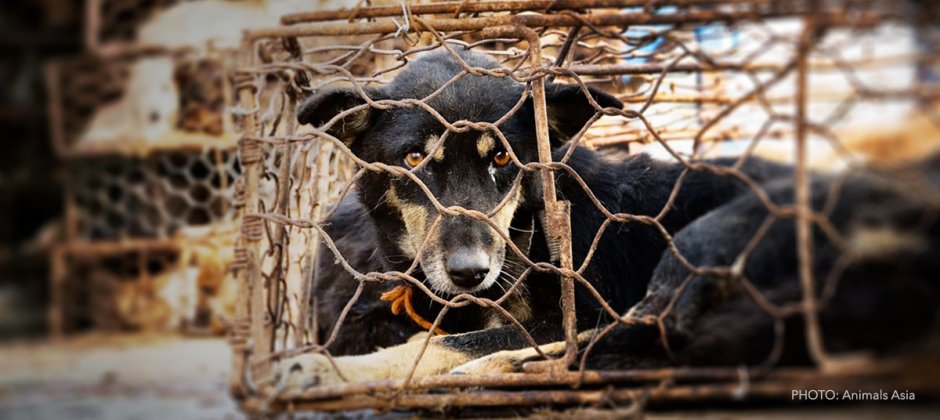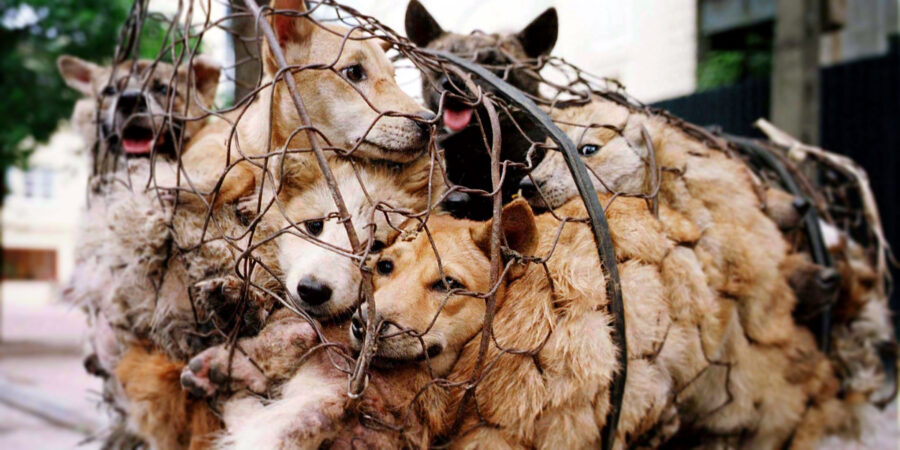Much to the outrage of animal lovers across the world, the city of Yulin in China became the site of a dog meat eating festival. But what does this festival, and our feelings toward it, reflect in us?
Thousands of terrified dogs — some who are stolen companion animals and others who were living on the streets — are butchered for human consumption at the annual Yulin dog eating ‘celebration’. Forced to travel long distances crammed into crowded wire cages, the dogs languish without food or water as they await an awful fate.











